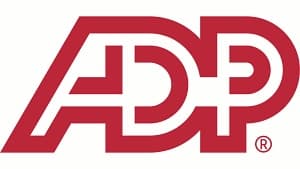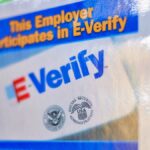Estimated reading time: 5 minutes
(Editor’s Note: Today’s post is brought to you by our friends at Wisely® by ADP, a suite of cost-effective pay solutions that helps organizations move to 100% paperless pay. The myWisely app has been recognized as the App of the Year at the HR Technology Conference. Congrats! Enjoy the article.)
Several weeks ago, I published an article about “8 Employee Benefits Worth Considering to Attract and Retain Talent”. One of those benefits was daily pay or gig pay. The more correct term is earned wage access (EWA) and I want to elaborate on that today.
EWA refers to an employee’s ability to access their earned wages prior to the next pay cycle. It’s not a pay advance or loan. The idea behind EWA is to give employees access to money they’ve already earned. Last year, we talked about how there’s a benefit to individuals and organizations in having more control over their finances and how apps like ADP’s Wisely can help employees manage their money. As you will see, it’s all connected.
Giving employees more control over their money can benefit their financial wellbeing. In the ADP study “Employee Financial Wellness Programs: An Employer’s Guide”, more than 85% of both employees and employers agree that financial wellbeing is important to overall wellbeing. It makes sense. When employees are feeling their best, they can do their best work. And that benefits the organization. EWA is an employee benefit that helps everyone.
But before I talk about how EWA works, I want to address some of the most common questions (aka objections) that organizations might have. I could see it being necessary to get the objections out of the way before engaging in a serious dialogue about earned wage access.
- Does offering earned wage access mess up the company’s payroll processing? No, EWA operates separate from payroll.
- Does offering earned wage access create more work for HR and payroll? No, employees would request EWA using an app like ADP’s Wisely. In fact, because employees are requesting their earned wages via an app, no one in HR, payroll, or management even needs to know. The employee can maintain their privacy.
- Are employees charged for using this service? Short answer – for Wisely, no. This is an excellent question and much-debated topic. I spoke with the team at ADP, and, while some EWA programs may charge an employee fee, ADP feels strongly that employees should not have to pay a fee to access their earned wages early. Let me add that I was very happy to hear this because I agree with them.
- Can employees take out all their pay early? No, the EWA feature of Wisely only allows employees access to a percentage of their wages (all EWA programs may not have this safeguard in place). And don’t forget, it’s their earned wages – not projected wages.
So, offering an earned wage access benefit to employees is NOT going to mess up payroll, add an additional level of administration and bureaucracy, or allow employees to plan a “take the money and run” scheme.
The Advantages of Earned Wage Access
Now that we’ve gotten the objections out of the way, let’s discuss why this benefit makes so much sense. We’re all seeing the same news headlines about inflation, recession, etc. I don’t want to minimize the fact that budgets are tight right now and households are trying to figure out how to make ends meet. That alone is a relevant reason and one that shows empathy for what employees might be experiencing.
However, even when we’re not talking about inflation and recession, there are times when we need a little extra cash. It could be an unexpected medical bill, a trip to care for a family member, or frankly, just sleeping better at night knowing you have a little more in your bank account. While EWA can be helpful during a recession, it isn’t just a “recession” benefit. It’s something that any employee might need at any time.
When those moments of need happen, employees don’t want to go to HR, payroll, or their boss to talk about their finances. And they shouldn’t have to. The reason an employee might need access to earned wages could be highly personal. Not to mention that the company really doesn’t want to know.
The good news is that the technology to handle the transaction already exists. It’s built into the Wisely app. Employees simply make the request, and the money is transferred into their mobile wallet.
Yes, it really is that easy.
Yes, it takes longer to answer all the potential objections than to give employees a benefit that will help them manage their money better.
Yes, it takes longer to answer all the potential objections than to give employees a benefit that will help them manage their money better.
Of course, organizations should ask all the questions and make sure the appropriate precautions are in place. But at the end of the day, employees should have access to their earned wages. Employers should not create obstacles to giving employees their money.
Some employees are going to use this benefit with more frequency. Others might use it rarely. Everyone will agree that having the option available to them is important. It could be one of those benefits that sets your organization apart from everyone else because the company is thinking about an employee’s financial wellbeing.
When and how employees get paid can be a strategic advantage in an organization’s recruiting and retention efforts. If you want to learn more about earned wage access, ADP is hosting a webinar on “Offering Earned Wage Access: Strategic & Compliance Considerations”. It’s scheduled for Thursday, September 8, 2022, at 2p Eastern. And as always, if you’re already booked that day, sign up anyway to get the recording. And you can also download ADP’s latest white paper on “Earned Wage Access: Tapping into the Potential of Flexible Pay for Today’s World of Work”.
40









John Barnes says
This seems to me to be very similar to payday loans. If the money is spent early, it could (will) eventually place the employee in a position of peril.